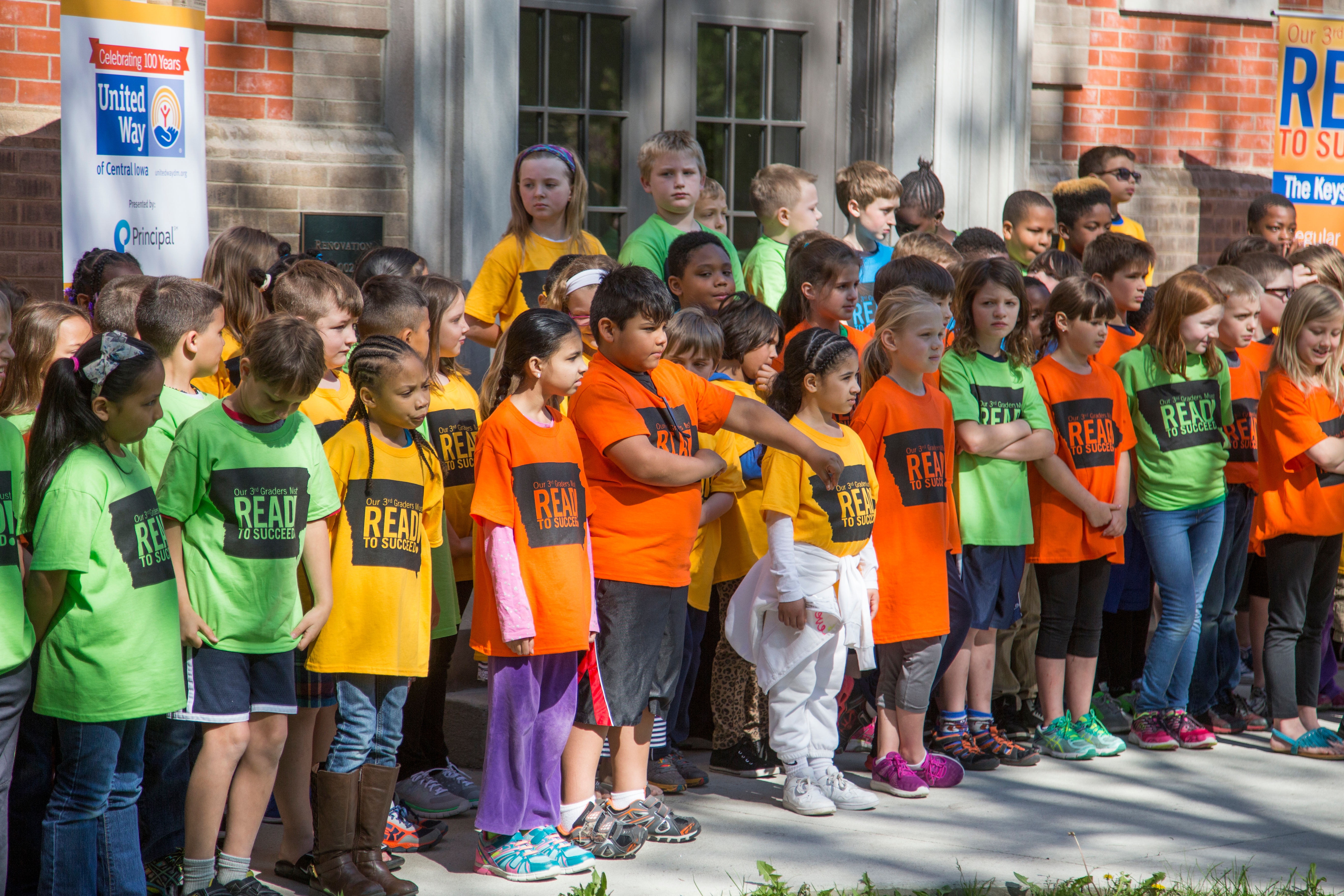United Way of Central Iowa’s Read to Succeed campaign is about more than just increasing kids’ reading proficiency. It’s also about instilling a lifelong love of reading, one that will serve kids from school days to old age.
Empowering your child to start a book club is a great way to reveal the joy of reading. The idea may seem overwhelming at first, but it’s easier than you might think. Here are a few simple ideas to consider before kicking off the club.
Decisions to Make First
Who will participate in your book club?
Ideally, all children involved in your group will be at a similar reading level, so you may want to target a particular age range for your group, such as second- and third-graders. Remember that younger children or weaker readers can have parents read aloud to them or listen to books on tape. Consider your demographic: mothers and daughters, fathers and sons, or simply parents and children. Older children could enjoy leading their own discussion with a parent or two to supervise.
How many participants are ideal?
Too few participants may mean a less lively conversation, while too many reduces the time for each child to talk. Book clubs of between five and eight children and their parents are optimal.
How will you advertise your book club?
You may simply want to invite your child’s friends and their parents by sending an invitation through the mail or by email. You can also post a flyer at your local library or children’s book store, or advertise in school newsletters.
Where will you meet?
Meetings can be held in participants’ homes on a rotating basis, in a local library, in local book stores or at local coffee shops or restaurants. The size of your group may help you identify the ideal location.
Planning Your First Meeting
Once you’ve found some children and parents interested in the book club, hold an organizational meeting to orient participants. This is a time for group members to get to know one another, establish some ground rules and decide on a meeting schedule and the first book to read. Ask group members to bring some of their favorite books to the meeting and give a summary of each book. Ask the kids to come up with a catchy name for the book club. Make sure to include the kids in all the decision-making.
Book Club Activities
Welcoming Activity: To set participants at ease, create a short welcoming game or activity related to the book you’ve read. For example, define one new or interesting word you learned from the book, share a short entry from your reading journal or declare your favorite character.
Book Discussion: The discussion is the heart of the book club, so spend the majority of your time on it. Depending on the size of the group and the ages of the children, discussion can range from 20 minutes to an hour. Whether the discussion is led by parents, children or both, prepare some questions ahead of time in case of a lapse in conversation.
Hands-On Activities: To engage kids, find or design an activity to accompany the book. In one book club, after reading “Call It Courage” by Armstrong Sperry, parents and their fourth-graders built miniature outrigger canoes based on the book’s rich description of life in the South Pacific.
Refreshments: Both kids and parents enjoy a time to talk informally and share a snack. Plan a themed snack related to the book, such as magic wand cookies for Harry Potter.
Book Rating: At the end of the discussion, offer members a chance to rate the book, using stars or numbers, and explain the reason for the rating.
Book Talks and Book Selection: Before closing the meeting, agree on the next selection. You might ask each child to bring in a book and give a short summary. Then the group can vote on the next selection. If you need book ideas, other parents, librarians and teachers can provide good suggestions for book clubs.
Business: At the end of the meeting, spend a few minutes on announcements. Members may want to tell others about upcoming events at local libraries or schools or discuss the book club schedule.
Incentives and Rewards: Make a chart where everyone can keep track of the books they read. Help them set realistic goals since everyone’s goals may be different.
Guests Speakers: Kids enjoy seeing how the book relates to real life and real people. If your theme is mysteries, call the local police station and invite a detective for a chat. Or have a local historian speak about unsolved mysteries in your area.






%20-%20No%20Tagline.png?width=180&name=211%20Logo%20-%20color%20(white%20bubble)%20-%20No%20Tagline.png)

